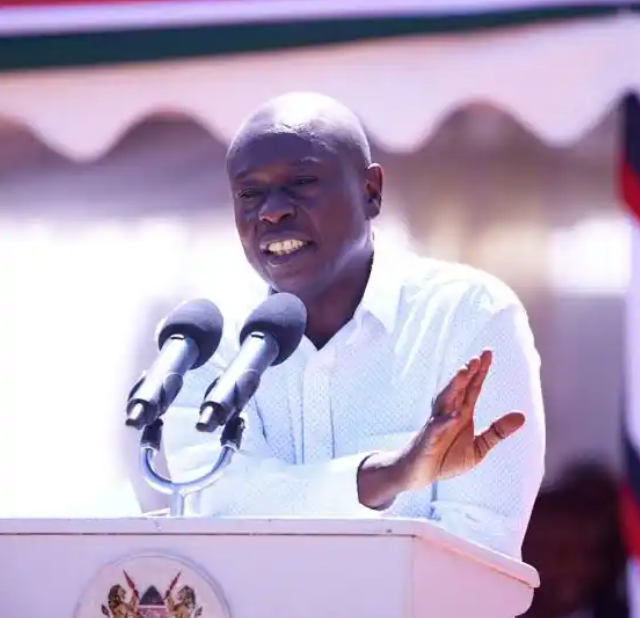Deputy President Hon. Rigathi Gachagua’s advocacy for the One-Man One-Vote and One-Shilling agenda found renewed support, whether by design or coincidence.
This agenda, championed by Gachagua, calls for a fairer distribution of resources across counties, ensuring that each person’s vote and contribution is equally recognized and valued in the allocation of national funds.
The session gained momentum when a Member of Parliament from Mandera highlighted a significant achievement.
In a video clip seen by this writer, the Mandera MP informed the house that his county government had successfully offset all school fee arrears for secondary school students, both within and outside the county.
This revelation sparked a broader debate on the equitable distribution of resources among counties.
Taking up the discussion, South Mugirango MP Hon. Silvanus Osoro questioned the disparities in educational funding across counties.
He pointed out that while Mandera could fully fund school fees for its students, children in Kisii were only receiving around 3,000 shillings in bursary, and even that meager amount was not always guaranteed. Osoro’s remarks underscored a stark contrast in financial support provided to students, hinting at deeper systemic issues.
Osoro’s parting comments were particularly pointed.
He suggested that either some counties, like Kisii, were plagued by corruption, or they were simply not receiving as much funding as counties like Mandera.
This statement brought to light the potential discrepancies in how national revenue is allocated and used at the county level.
Gachagua’s One-Man One-Vote and One-Shilling agenda addresses these very concerns.
He has long argued for a revenue-sharing formula that does not disadvantage counties such as Wajir and Mandera while disproportionately benefiting counties like Kakamega, Kiambu, Kisii, Kisumu, and Nairobi.
The goal is to create a more balanced and just system where all counties have an equal opportunity to thrive.
The recent parliamentary debate highlights the urgency and relevance of Gachagua’s agenda. It points to a growing awareness and acknowledgment among lawmakers of the need to revisit and revise the current resource allocation framework.
Ensuring that each county receives fair and adequate funding is crucial for promoting equitable development across the nation.
Gachagua’s vindication in this matter underscores his commitment to advocating for fair treatment of all counties. It also serves as a call to action for other leaders to support initiatives that promote equity and justice in resource distribution.
As discussions continue, it is imperative that lawmakers prioritize the creation of policies that reflect the principles of fairness and equality that the One-Man One-Vote and One-Shilling agenda embodies.
In conclusion, the parliamentary debate not only highlighted existing disparities but also reinforced the need for systemic reforms in revenue allocation.
Gachagua’s advocacy for a fairer distribution model is a crucial step towards achieving this goal, ensuring that all counties can support their residents effectively and equitably.





















Add Comment